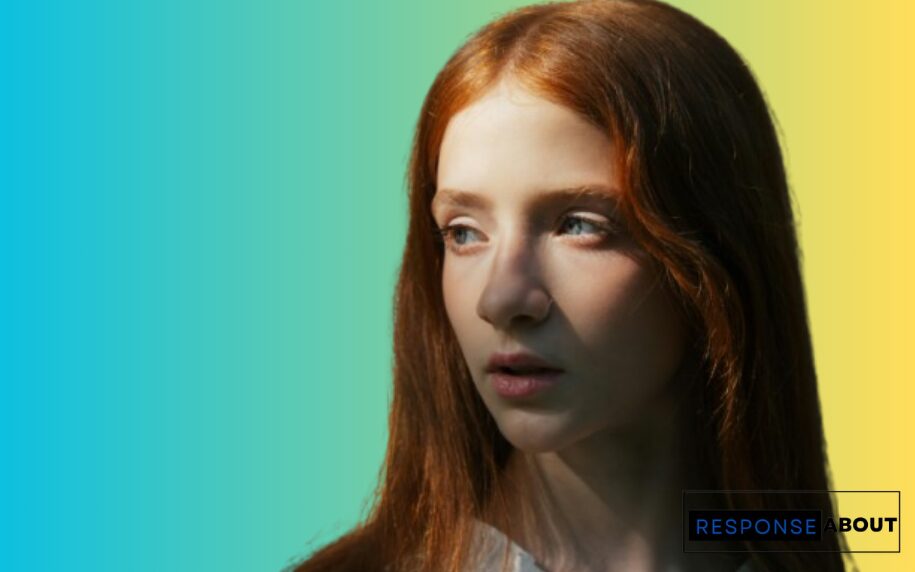You know the feeling. You’re having a conversation, maybe sharing something that’s been on your mind, and then—bam. “You’re too sensitive.” It’s like a verbal eye roll, dismissing your emotions in one fell swoop. But here’s the thing: Being sensitive is not a weakness. It’s a superpower. And the next time someone tries to shut you down with those three little words, you’ll be ready.
You’ve probably heard it before. Maybe it was a well-meaning friend or a frustrating co-worker. Heck, it could’ve even been a family member at the dinner table. But no matter who’s dishing out this tired cliché, one thing’s for sure—it’s not helpful. At all.
So, what can you do when someone pulls the sensitivity card? Well, my friend, you’ve got options. Here are 35 go-to responses to keep in your back pocket for the next time someone says you’re “too sensitive.”
35 Go-To Responses When Someone Says ‘You’re Too Sensitive’
1. “Thanks for sharing your opinion. I’ll be sure to file that away.”
This one’s a classic. It’s polite, but it also makes it clear that you’re not interested in their unsolicited feedback. It’s a gentle way of saying, “Thanks, but no thanks.”
2. “I prefer to think of it as being emotionally intelligent.”
Boom. Mic drop. Being sensitive isn’t a bad thing—it means you’re in tune with your emotions and the emotions of others. It’s a sign of emotional intelligence, and that’s something to be proud of.
3. “I’m not too sensitive. You’re just insensitive.”
Sometimes, you’ve got to fight fire with fire. If someone’s being insensitive, call them out on it. It might just make them think twice before throwing around that phrase again.
4. “I’m sorry my feelings are inconvenient for you.”
Ooh, the sarcasm. It’s biting, but it gets the point across. Your feelings are valid, and you shouldn’t have to apologize for having them.
5. “My sensitivity is what makes me a good friend/partner/co-worker.”
Your sensitivity is a strength, not a weakness. It’s what makes you empathetic, compassionate, and understanding. Don’t let anyone tell you otherwise.
6. “I’d rather be too sensitive than completely apathetic.”
Caring about things deeply is not a flaw. In a world that can often feel cold and uncaring, a little sensitivity can go a long way.
7. “My feelings are valid, even if you don’t understand them.”
You don’t need anyone’s permission or approval to feel the way you feel. Your emotions are valid, period.
8. “I’m not ‘too sensitive.’ I’m just not desensitized to cruelty.”
In a world that can be pretty harsh sometimes, being sensitive is a sign that you haven’t let the cruelty harden you. And that’s a beautiful thing.
9. “I’ll stop being so sensitive when you start being more considerate.”
Oh, snap. This one puts the ball back in their court. If they want you to be less sensitive, they need to be more thoughtful about how they interact with you. It’s only fair.
10. “My sensitivity allows me to fully experience life.”
Being sensitive means you feel things deeply—the highs and the lows. And while that can be overwhelming at times, it also means you’re fully engaged with the world around you. You’re not just skating by on the surface.
11. “I’m not too sensitive. The world is just too harsh.”
Preach. It’s not your job to toughen up—it’s the world’s job to be a little kinder. And until that happens, you’ll keep being your beautifully sensitive self.
12. “Thank you for sharing your thoughts. I’ll give them the consideration they deserve.”
This is a polite way of saying, “I hear you, but I don’t really care.” It’s a subtle dismissal that lets them know their opinion isn’t as important as they think it is.
13. “Being sensitive is what makes me human.”
Robots don’t cry at sad movies. Computers don’t get butterflies in their stomachs. Sensitivity is part of what makes us human, and that’s something to celebrate, not criticize.
14. “I’d rather be too sensitive than completely jaded.”
In a world that can sometimes feel like it’s full of cynicism and negativity, being sensitive is a breath of fresh air. It means you still have the capacity to be moved, to feel deeply, and to care.
15. “Sensitivity is a strength, not a weakness.”
This one’s worth repeating. Don’t let anyone convince you that being sensitive is a flaw. It’s a superpower—one that allows you to connect with others, to create art, and to make a difference in the world.
16. “My sensitivity is what makes me a great [artist/writer/musician].”
If you’re a creative type, your sensitivity is likely one of your greatest assets. It’s what allows you to tap into your emotions and create work that resonates with others.
17. “I’m sorry you’re uncomfortable with emotions.”
This one’s a little sassy, but it makes an important point. Some people are uncomfortable with big emotions—both their own and other people’s. And that’s their problem, not yours.
18. “I won’t apologize for feeling deeply.”
You shouldn’t have to say sorry for being sensitive. Your feelings are a part of who you are, and you have every right to experience them fully.
19. “My sensitivity is a reflection of my capacity for empathy.”
Being sensitive means you have a great capacity for understanding and sharing the feelings of others. That’s a beautiful thing, and it’s something the world could use more of.
20. “I’ll take being too sensitive over being completely callous any day.”
Sure, being sensitive can be tough sometimes. But it’s a heck of a lot better than being totally indifferent to the feelings and experiences of others.
21. “My sensitivity is a sign of my strength, not my weakness.”
It takes a lot of courage to be vulnerable, to feel deeply, and to wear your heart on your sleeve. Your sensitivity is a testament to your strength, not a sign of weakness.
22. “I’m not too sensitive. You’re just not used to people standing up for themselves.”
Boom. This one’s for when someone’s being a straight-up bully. They might not be used to people pushing back against their insensitive comments, but that doesn’t mean you have to take it lying down.
23. “My sensitivity is what makes me a good listener.”
Being sensitive means you’re attuned to the needs and feelings of others. And that makes you an excellent listener—someone who can offer a supportive ear and a shoulder to cry on.
24. “I won’t let you make me feel bad for feeling.”
This one’s important. Don’t let anyone shame you for being sensitive. Your feelings are valid, and you have every right to experience them without judgment.
25. “My sensitivity allows me to appreciate the beauty in life.”
Being sensitive means you’re able to see the world in all its vivid colors—the joy, the sorrow, and everything in between. It’s a gift that allows you to fully appreciate the beauty and complexity of life.
26. “I’m not too sensitive. You’re just insensitive to my needs.”
This one’s for when someone’s being particularly dense. They might not realize that their words or actions are hurtful, but that doesn’t make them any less valid.
27. “My sensitivity is a sign of my humanity.”
Being sensitive is part of what makes us human. It’s what allows us to connect with others, to feel empathy and compassion, and to experience the full range of emotions that life has to offer.
28. “I won’t let your discomfort with emotions dictate my behavior.”
Just because someone else is uncomfortable with big feelings doesn’t mean you have to tamp down your own emotions to make them feel better. Your sensitivity is a part of who you are, and you have every right to express it.
29. “My sensitivity is what makes me a great [parent/partner/friend].”
Being sensitive means you’re attuned to the needs and feelings of others—and that makes you an amazing parent, partner, or friend. You’re able to offer the kind of emotional support and understanding that people crave.
30. “I’m not ‘too sensitive.’ I’m just not willing to tolerate disrespect.”
There’s a difference between being sensitive and being a pushover. You can be emotionally attuned and still stand up for yourself when someone’s being disrespectful.
31. “My sensitivity allows me to create deep, meaningful connections with others.”
Being sensitive means you’re able to form deep, authentic connections with the people around you. You’re not afraid to be vulnerable, to share your true self, and to listen with an open heart.
32. “I won’t let you gaslight me into thinking my feelings aren’t valid.”
Gaslighting is a form of manipulation that makes you question your own feelings and perceptions. And it’s not okay. If someone’s trying to convince you that your sensitivity is a problem, stand your ground. Your feelings are valid, period.
33. “My sensitivity is a sign of my resilience.”
Being sensitive in a world that can be harsh and unforgiving takes a lot of strength. It means you’ve been through tough times and come out the other side with your heart still open. That’s not weakness—that’s resilience.
34. “I’m not ‘too sensitive.’ I’m just not desensitized to the world’s cruelty.”
In a world that can be pretty cruel sometimes, being sensitive is a sign that you haven’t let the darkness dim your light. You still believe in the goodness of people, and you’re not afraid to feel deeply. That’s a beautiful thing.
35. “My sensitivity is my superpower.”
And there you have it, folks. The ultimate response to anyone who dares to call you “too sensitive.” Your sensitivity is your superpower—the thing that makes you uniquely you. It’s what allows you to connect with others, to create art that moves people, and to make the world a little bit brighter just by being in it.
Frequently Asked Questions
Q: Is being sensitive a bad thing?
A: Not at all! Sensitivity is a natural trait that allows you to be more empathetic, creative, and emotionally aware. It’s a strength, not a weakness.
Q: Can I be sensitive and still be successful in my career?
A: Absolutely! Many highly successful people are also highly sensitive. Your sensitivity can be an asset in fields like creativity, counseling, and leadership.
Q: How can I cope with overwhelming emotions?
A: Practice self-care and develop healthy coping mechanisms like journaling, meditation, or talking to a therapist. Remember, your emotions are valid, and it’s okay to take time to process them.
Q: Is there a difference between being sensitive and being an empath?
A: While all empaths are highly sensitive, not all highly sensitive people are empaths. Empaths have an innate ability to absorb and feel the emotions of others, while highly sensitive people are more attuned to their own emotions.
Q: Can sensitivity be a sign of an underlying mental health condition?
A: While sensitivity itself is not a mental health condition, it can be a symptom of conditions like anxiety, depression, or sensory processing disorder. If your sensitivity is interfering with your daily life, it’s worth talking to a mental health professional.
So there you have it, folks—35 comebacks to keep in your back pocket the next time someone tries to dismiss your sensitivity. Remember, your emotions are valid, your feelings are real, and your sensitivity is a strength, not a weakness. Don’t let anyone tell you otherwise.


